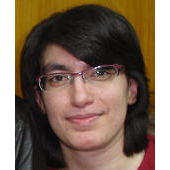Here you will discover the individuals who are pursuing their doctoral studies and making significant contributions to the field of biomedical engineering.
Our PhD candidates are passionate about research and are actively engaged in exploring innovative solutions to complex challenges in healthcare. They form an integral part of our research community and work closely with our esteemed faculty members and researchers to advance scientific knowledge and make a positive impact on patient care. Within our department, PhD candidates have the opportunity to delve deep into their chosen areas of research, exploring cutting-edge topics in biomedical engineering. Their research projects cover a wide range of domains, including medical imaging, bioinformatics, biomechanics, biomaterials, tissue engineering, and more. Through their investigations, they aim to expand the frontiers of knowledge and develop practical solutions to improve healthcare outcomes.
As PhD candidates, these individuals undergo rigorous academic training and professional development to hone their research skills and critical thinking abilities. They actively participate in seminars, conferences, and workshops to stay updated with the latest advancements in their respective fields. Their dedication to continuous learning ensures that they are equipped with the necessary expertise to excel in their research endeavors.
We encourage you to explore the profiles of our PhD candidates, as their research projects demonstrate their commitment to advancing scientific knowledge and addressing critical healthcare challenges. They are eager to collaborate, exchange ideas, and contribute to interdisciplinary research initiatives.
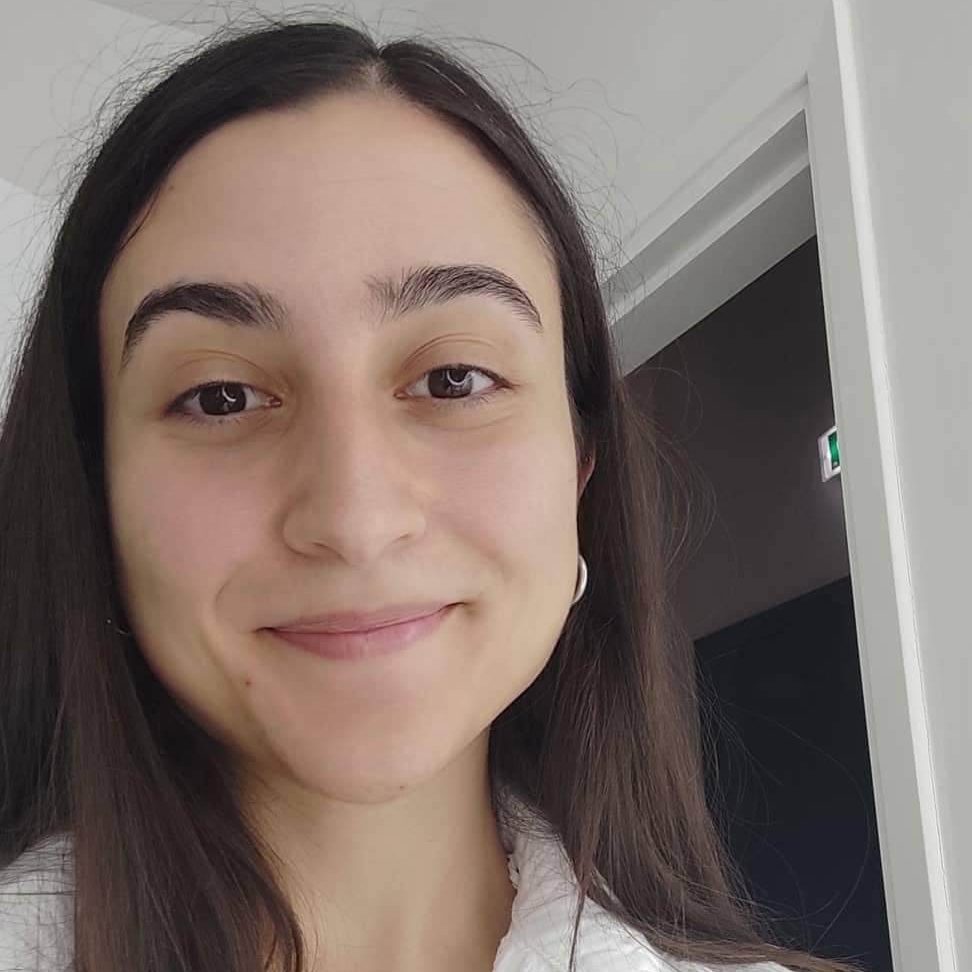
Dimitra Amoiridou
Dimitra Amoiridou received her bachelor's degree from the school of Mathematics of the Aristotle University of Thessaloniki (AUTh) in 2018. She also holds a master's degree in Statistics and Modelling from the Aristotle University of Thessaloniki and a master's degree in Computational neuroscience, cognition, and AI from the University of Nottingham, both in 2020. Her master thesis specializes in the functional connectivity in patients with Parkinson's disease. Since 2021 she is a Ph.D. candidate in the Biomedical Engineering Laboratory at the National Technical University of Athens. Her research interests include statistical analysis on neuroimaging data, machine learning and deep learning algorithms, brain connectivity, and graph theory.
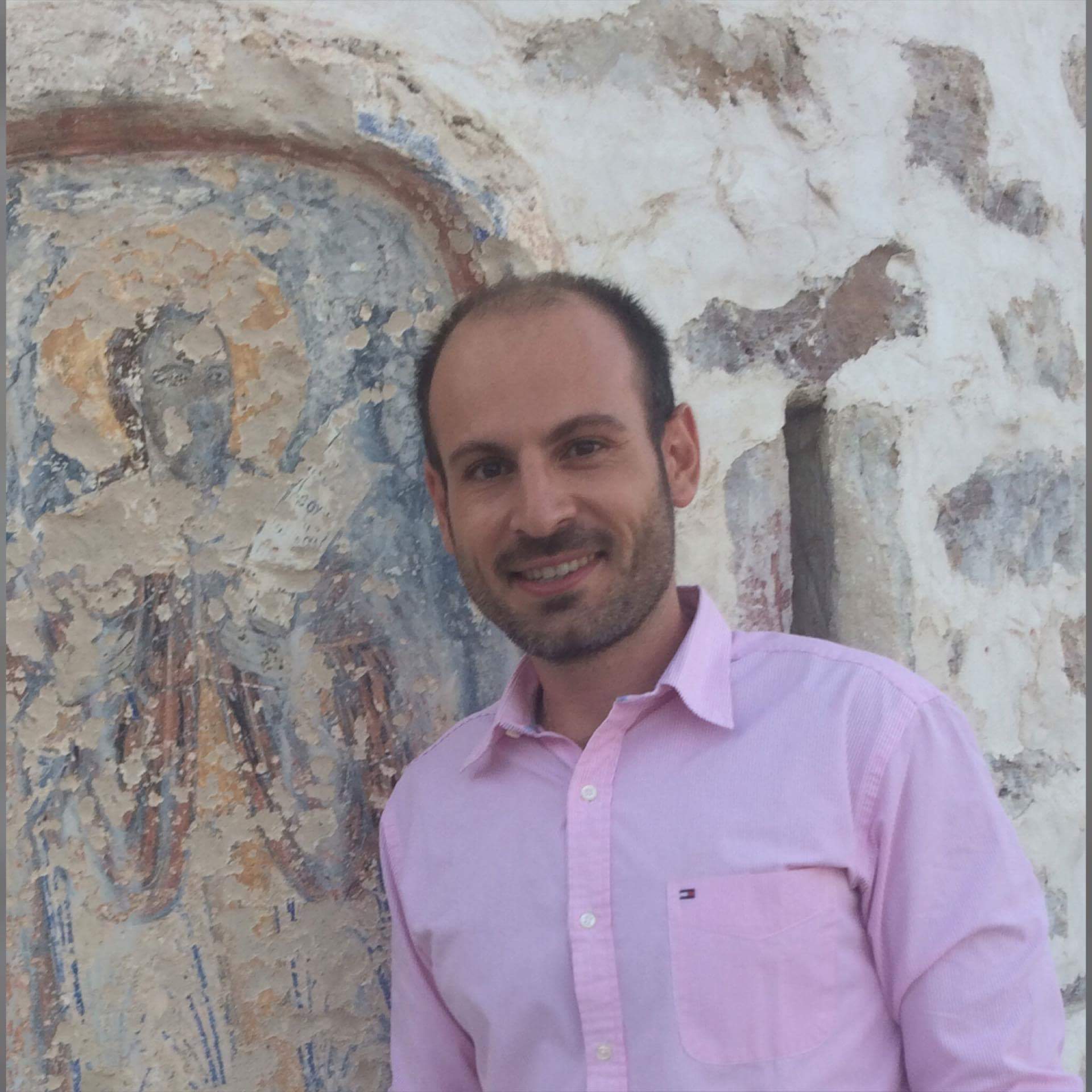
Vasileios Apostolakos
Vasileios Apostolakos (Male) is a PhD Candidate in the Biomedical Engineering Laboratory at the National Technical University of Athens, since October 2017. He holds a diploma in Mathematics (University of Patras) and a Master's degree in Business Mathematics at National and Kapodistrian University of Athens (NKUA) & Athens University of Economics and Business (AUEB). He prepares and teaches the undergraduate courses "Measurements and Controls in Biomedical Engineering" and "Biomedical Technology Laboratory". He is high experienced in tutoring and teaching Mathematics in secondary and tertiary education and he has worked in the telecommunications industry within the sector of information, communication and network technology for 1 year as a technical specialist. He has participated in European Union’s Horizon 2020 RIA under grant agreement No 965343, RETENTION, a project that aims to develop an innovative platform supporting enhanced clinical monitoring and interventions aimed at improving the clinical management of patients with chronic Heart Failure, reducing their mortality and hospitalisation rates, and improving their quality of life, safety, and well-being. Ηe has also participated in European Union’s Horizon 2020 MSCA RISE Action under grant agreement No 823951, BIO-PHOENIX, a project that aims to develop a fundamentally novel computational model for reconstructing complex software systems, following some massive internal failure or external infrastructure damage. He has a firm background in Statistics, Clinical Decision Support Systems, Biomedical Signal Analysis and Mathematical Modeling. His interests also involve Applied Mathematics, Biological and Biomedical Systems Simulation and Biomedical Technology Management Systems and Analysis.
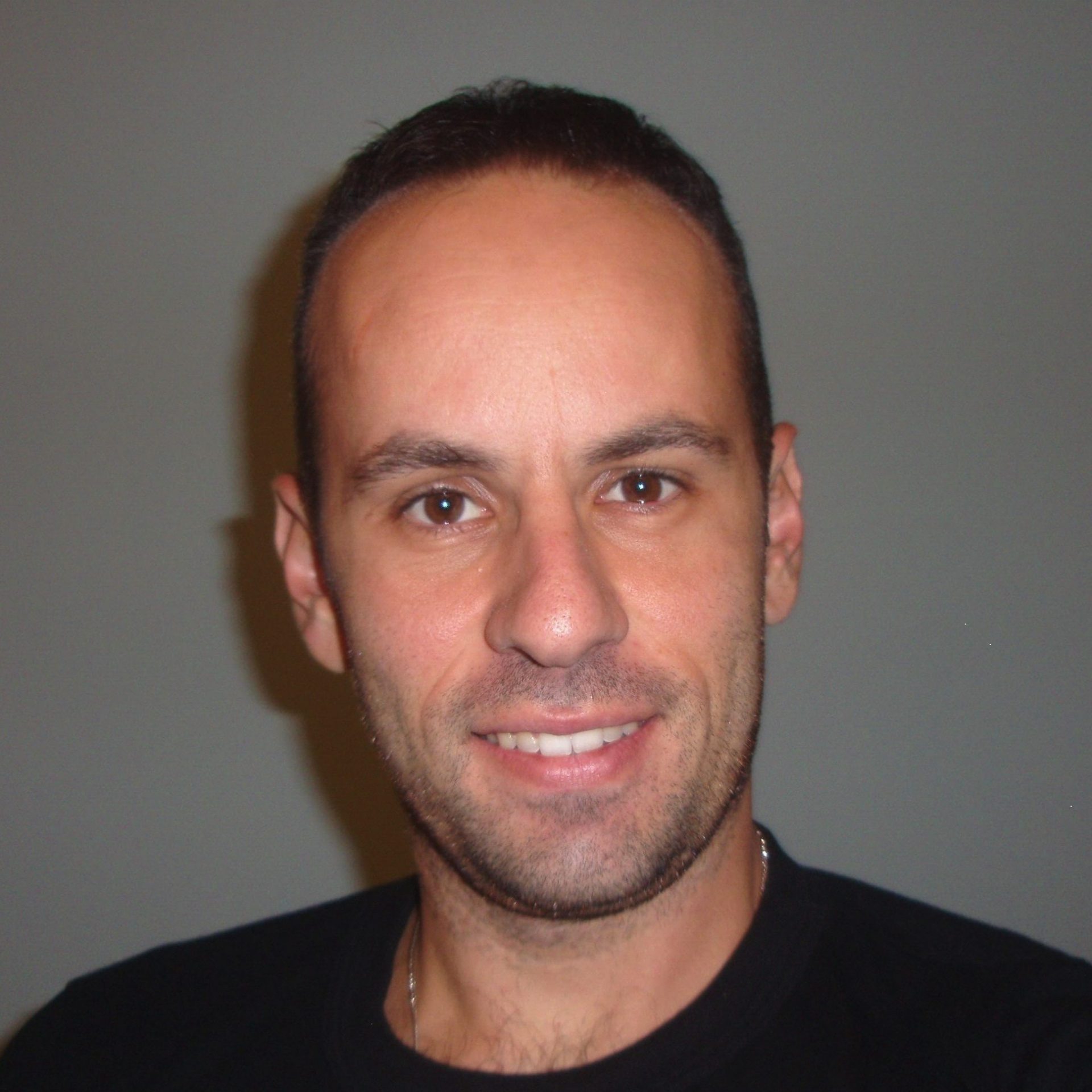
Dimitrios Binas
Dimitrios Binas has completed his studies at the Engineering Department of Hellenic Air Force Academy, while he holds a Master's degree in Business Administration at the Athens University of Economics and Business. He has been a PhD candidate in the Biomedical Engineering Laboratory at the National Technical University of Athens since 2017. His interests include decision support systems development, cancerous regions detection, as well as detection with specific imaging characteristics. He has participated in a project for the development of a decision support system based on radiogenomics for the therapeutic management of patients with ovarian cancer.
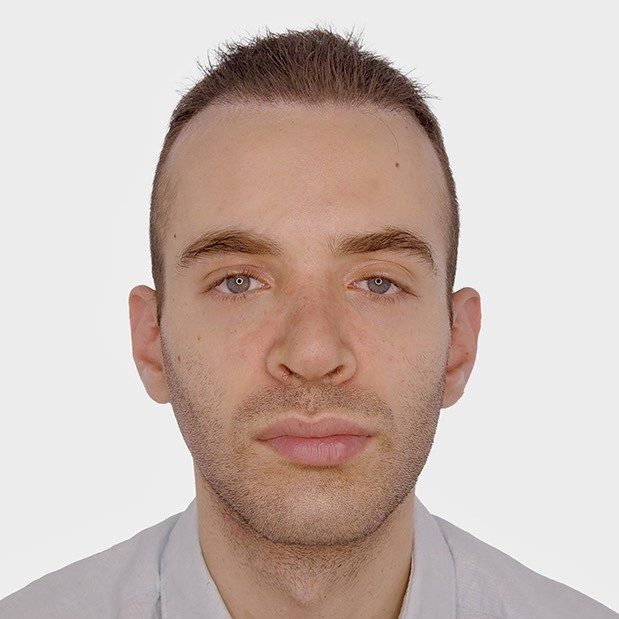
George Botis
George Botis is an alumni of the Mechanichal Engineering Faculty of the National and Technical University of Athens (NTUA) wherefrom he acquainted his diploma in the June of 2021. Since then he is a Doctoral Student at the Biomedical Engineering Laboratory of the Electrical Engineering Faculty of NTUA as well as Bachelor Student at the School of Medicine of the National and Kapodistrian University of Athens (NKUA). His dissertation topic concerns the developement of Clinical Tools for the study of Multiple Myeloma disease by utilizing Artificial Intelligence techniques. His research interests revolve around the intersection of Engineering and Medicine and include fields such as Medical Image Processing, Bioinformatics and Genome Editing.
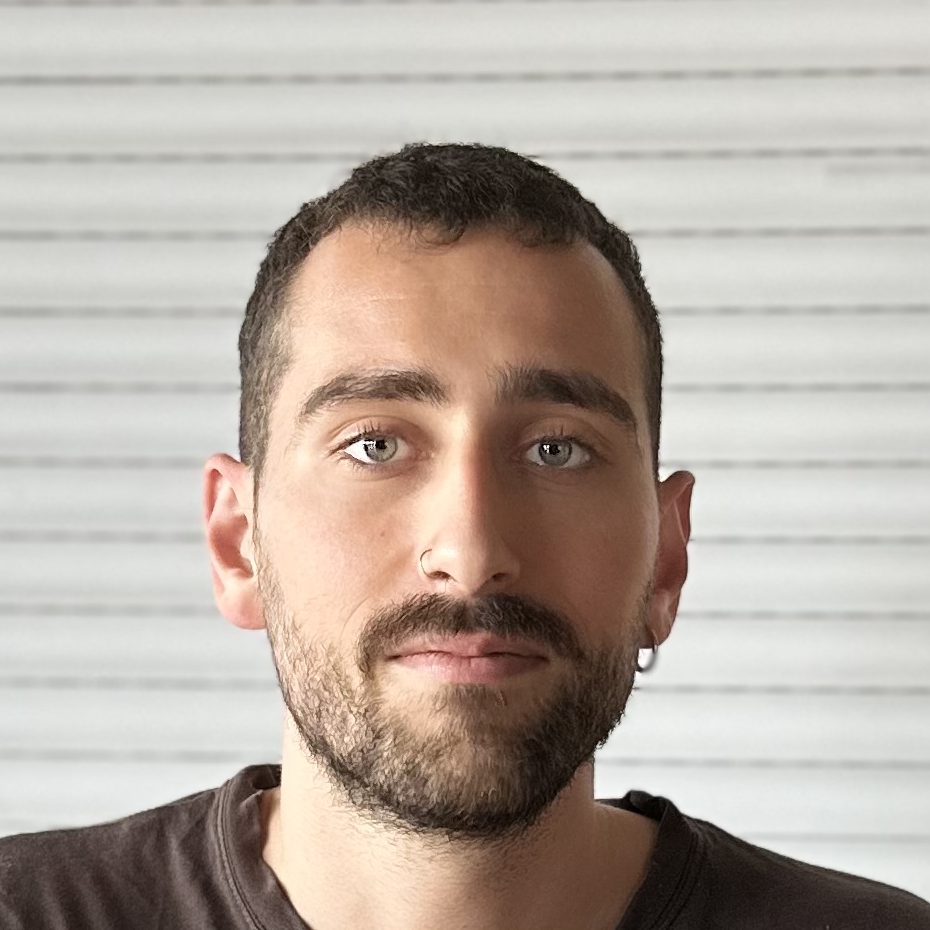
Kostas Georgas
Konstantinos Georgas completed his studies at the Department of Electrical and Computer Engineering at the National Technical University of Athens in June 2022. His diploma thesis was conducted at the Biomedical Technology Laboratory and concerned the prompt and valid intervention in psychosis via artificial intelligence. Since 2022, he has been a Ph.D. candidate at the School of Electrical and Computer Engineering of the NTUA, supervised by Professor George Matsopoulos. His areas of interest in research include machine learning, artificial intelligence-based models and algorithms, decision support systems, 3D medical image analysis, medical imaging, implementation of web applications and creation-management of medical databases, in accordance with the international medical standard FHIR (Fast Healthcare Interoperability Resources). He is involved in research for the Athens-based Institute of Communication and Computer Systems (ICCS).
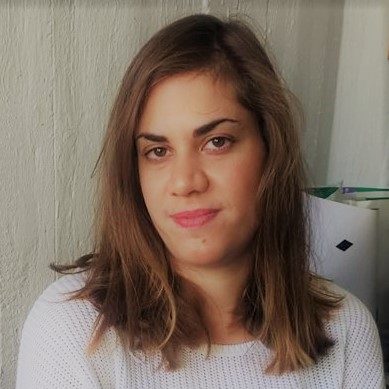
Olympia Giannakopoulou
Olympia Giannakopoulou holds a diploma in Electrical Engineering and Computer Technology from the University of Patras. Her diploma thesis "Decomposition of acoustic biosignals using periodic component analysis (πCA)" was carried out in the field of Telecommunications and Information Technology. The aim of the thesis was to contribute to the effort of improving the procedure of the acoustic biosignals components’ decomposition, which derive from piezoelectric crystal arrays, targeting both to the improvisation of the accuracy in medical results, and the reduction of healthcare costs. In November 2017 she started her career as an RF Engineer in the Telecommunications industry, where she worked for one year. From October 2018 until today she is a PhD candidate in the Biomedical Technology Laboratory of the National Technical University of Athens. She also has strong Theoretical and Technical background in the areas of Signal Analysis, Pattern Recognition, Artificial Intelligence as well as strong problem solving skills, team spirit and dedication to goal implementation. She has strong development skills including programming languages such as: C, C ++, Python, JavaScript, HTML, CSS, jQuery, MATLAB, Assembly, SQL, MySQL.
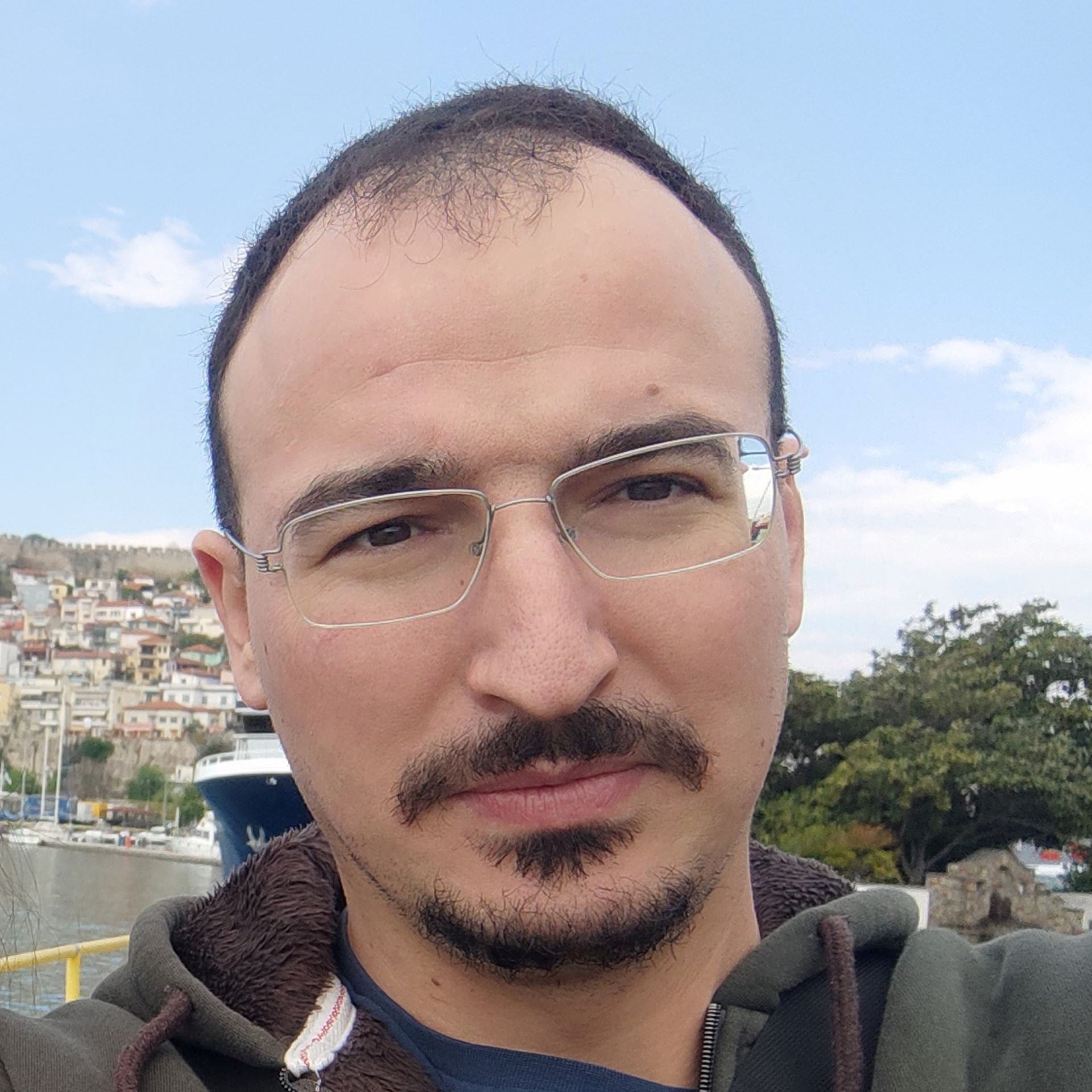
Kostakis Gkiatis
Gkiatis Kostakis graduated as Electrical and Computer Engineer from National Technical University of Athens (NTUA) in 2016. His diploma thesis was conducted in the Biomedical Imaging Group under Professor Matsopoulos Georgios and it concerned the brain network changes that can be observed in fMRI data from small cell lung cancer patients. The results of his diploma thesis were published entitled "Altered Brain Functional Connectivity in Small-Cell Lung Cancer Patients after Chemotherapy Treatment: A Resting-State fMRI Study". Following this work, he is now a PhD Candidate in Human Brain Imaging in Biomedical Engineering Lab of NTUA. Further, he is collaborating with "St. Luke's Hospital" in Thessaloniki, where he is responsible for acquiring and analyzing concurrent EEG-fMRI / DTI / fMRI for language and motor mapping / resting state fMRI data, as part of the presurgical evaluation of patients. His research area of interest is the mapping of language areas in healthy controls and the differences that can be observed in patient population prior to their neurosurgery.
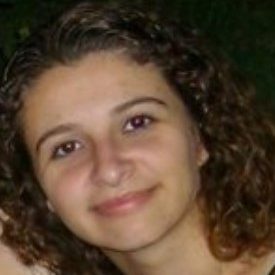
Penelope Ioannidou
She received an IT degree in Cultural Technology and Communication from the University of the Aegean, in 2009. She has a Master's degree in Cultural Informatics and Communications, which she received in 2011 from the same University. The aim of the thesis was the research and development of autonomous robotic vehicles. This was the trigger for the study and implementation of this thesis, the aim of which is to develop an autonomous robotic application using the humanoid Lego NXT robot. In more detail, this application includes the determination of the position of the robotic agent in the already known space and then its autonomous description for the purpose of QR recognition and locating their position. Every year, in the period 2004-2009, she received the excellence scholarship from the State Scholarship Foundation (IKY) for her degree. In addition, in the academic year 2010-2011, she also got a scholarship from the State Scholarship Foundation (IKY) for excellence at postgraduate level.
Currently, she is a PhD candidate at the School of Electrical and Computer Engineering of the National University of Athens in the Biomedical Technology laboratory. She has a strong background in decision support systems, veterinary signal analysis, mathematical modeling and ontology development. She also has programming knowledge of C, C++, Python, MATLAB, JavaScript, HTML, CSS, jQuery, Protégé, Fluent Editor, OWLGrEd. Her interests also include modelling with Ontology development and machine learning in the health field as well as online applications mainly in eHealth.
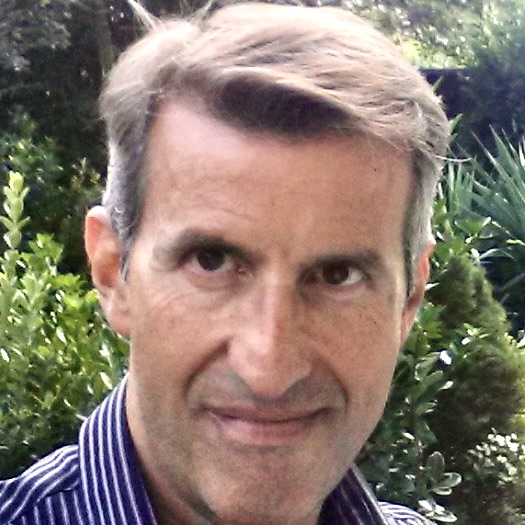
Markos Kaisarlis
Graduate of the NTUA School of Electrical Engineering with a Master's degree in techno-economic systems. Working on his doctoral research on breast cancer. He has long-term work experience in telecommunications.
Maria - Pavlina Kalla
Maria - Pavlina Kalla was born in Athens in 1987 and lives in Corinth. She received her Diploma in Mathematics in 2010 and her M.Sc. in Computational Mathematics and Computer Science in 2012, from University of Patras. Currently she is a candidate for a Ph.D. degree at the National Technical University of Athens. Her research interests include machine learning and digital image processing. She has programming experience in MATLAB, C/C++ and Java.

Vasiliki Karalidou
Vasiliki Karalidou holds a diploma in Electrical and Computer Engineering from the National Technical University of Athens (NTUA). In her diploma thesis, she focused on the study and application of different processing techniques of the Electrocardiogram (ECG) waveform for the automatic detection of arrhythmias, as well as the implementation and application of algorithms for the extraction of ECG features using MATLAB. Currently, she is a Ph.D. Candidate in the Biomedical Engineering Laboratory at the NTUA and is working on her Ph.D. thesis in the field of Biomedical Engineering entitled "Processing and Analysis of Biological Data" in the same faculty. Her research interests mainly include the classification of sequence variants (found in genes that cause genetic disorders), artificial intelligence, and medical image processing and segmentation techniques. In addition, her scientific interests include the Bioinformatics analysis of large volumes of genomic data, the development of sophisticated algorithms for the analysis and processing of genetic and transcriptional data to find biomarkers, as well as the prediction of the probability of cell mutations. Her development skills include programming languages such as: C, C++, Python and MATLAB.
Aikaterini Karampasi
Aikaterini S. Karampasi received her B.S. degree (integrated MSc) in Electrical and Computer Engineering in National Technical University of Athens. Her diploma thesis concerned the development of a medical Decision Support System towards the identification of Autism biomarkers in functional Magnetic Resonance Imaging (fMRI) data. She has also employed Neural Networks (NN) for the recognition of the myocardium in Magnetic Resonance Imaging (MRI) data during her internship and later as Machine Learning Engineer. She is currently a PhD candidate employing Artificial Intelligence (AI) tools in a variety of data (MRI, EEG) using multiple techniques. She recently has utilized and parametrized NNs for style transfer in medical images and has implemented Generative Adversarial Networks (GANs) for handling MRI data.
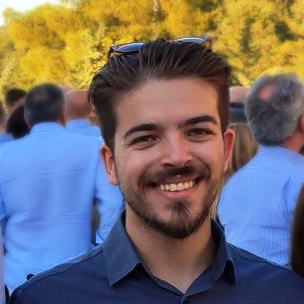
Vasileios Katsigiannis
Vasilis Katsigiannis received the Diploma in Mechanical Engineering in 2022 from the National Technical University of Athens (NTUA), specializing in Energy Engineering. Since 2022, he is pursuing an M.Sc. Degree in Data Science and Machine Learning at the School of Electrical and Computer Engineering (ECE) of NTUA, and since 2023, he is a Ph.D. Candidate in the Biomedical Engineering Laboratory of the School of ECE of NTUA, where he is working as a researcher.
His research focuses on developing AI-oriented medical decision support systems in healthcare applications, including medical image processing and biosignal and biomarker data analysis.
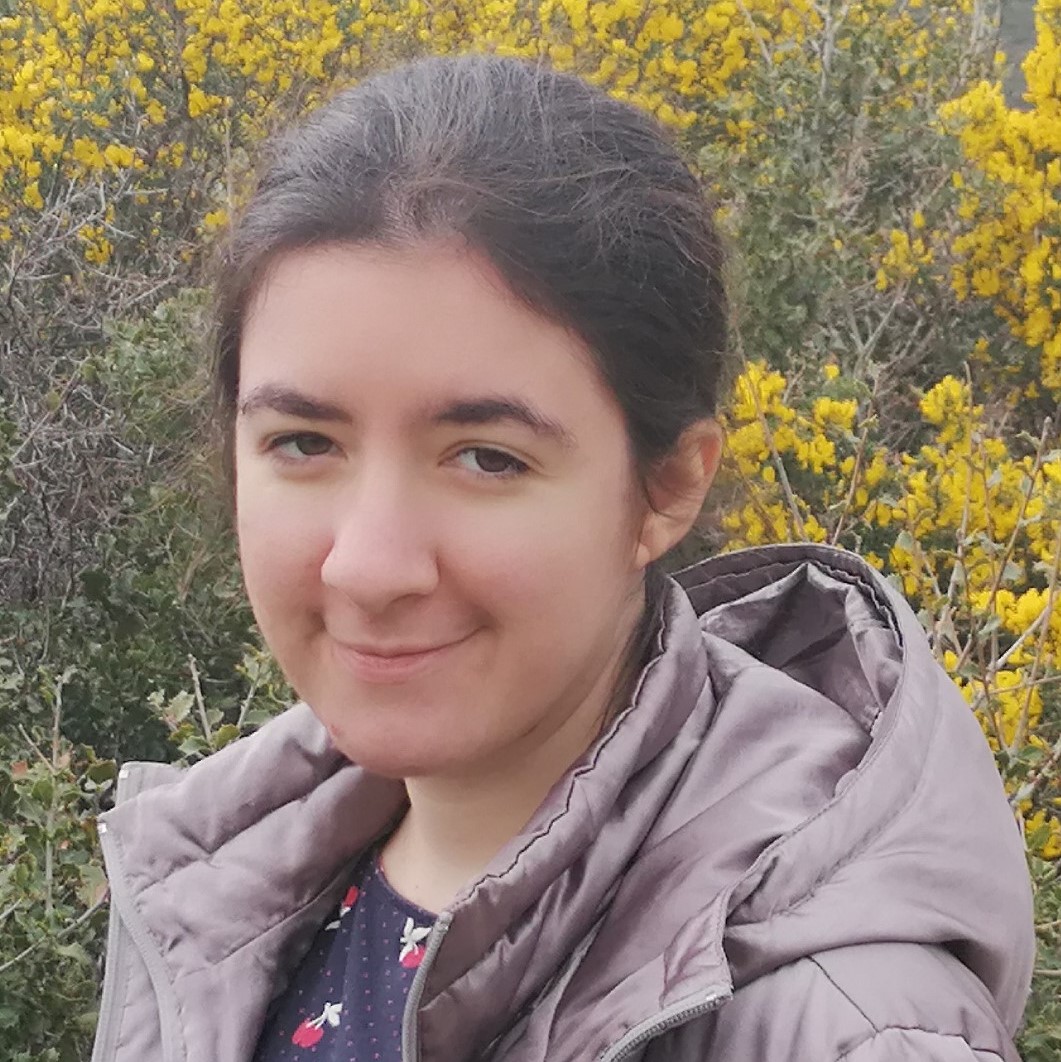
Vaia Kontopoulou
Vaia Kontopoulou received her Diploma in Electrical and Computer Engineering from the National Technical University of Athens in 2022. She is currently a PhD candidate in the Biomedical Engineering Laboratory of the same department. Her research interests include EEG imaging, graph theory and artificial intelligence applications in brain connectivity analysis. Her technical skills include experience in C, Python and Matlab.

Vassilia Kostarides
Vassilia Costarides has graduated from National Technical University of Athens, from the school of Mining and Metallurgical Engineering with a specialization in Materials Engineering. She proceeded her studies in Biomedical Engineering and has worked in the medical device industry for 6 years as a technical specialist. Since 2013 she has been participating in projects regarding public health, medical device nomenclature, health technology assessment and medical device technical specifications. Among her interests is also quality in healthcare and she is an ISO9001, ISO13485 and CE in medical software auditor. She is currently a PhD candidate in Biomedical Engineering in the National Technical University of Athens, working on signal processing of epileptic patients and has participated in various EU projects as a junior researcher.

Christos Mavridis
Christos Mavridis received his Diploma in Electrical and Computer Engineering in 2012 from National Technical University of Athens (NTUA) and M.Sc. in Microsystems and Nanοdevices in 2014 from NTUA. Currently he is a PhD candidate in the School of Electrical and Computer Engineering of the National Technical University of Athens (NTUA) and his research interests include biomedical technology, wireless biosensors networks, medical image processing and visualization. His has programming experience in Matlab, Java, C# and C++.
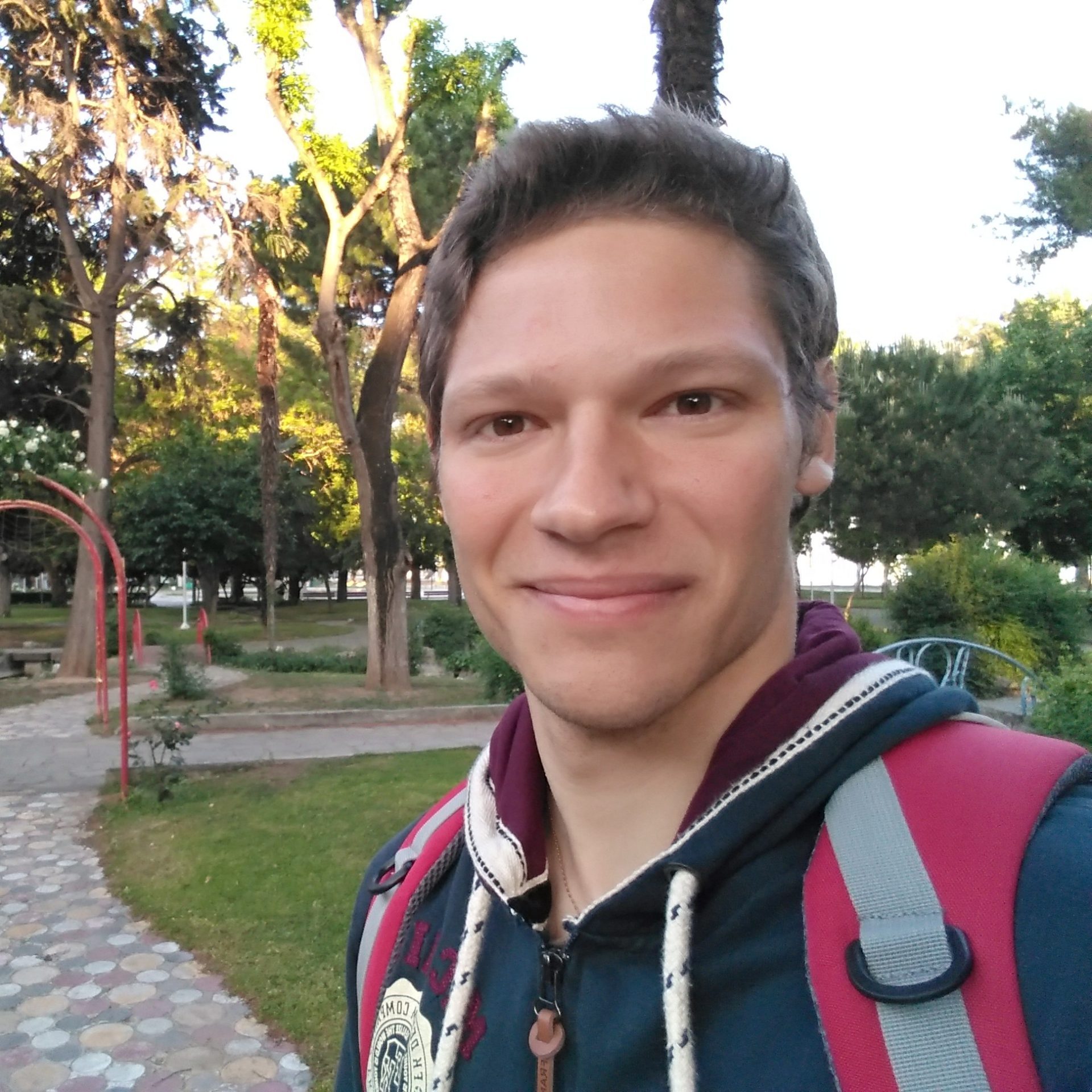
Stavros Miloulis
Stavros Miloulis (M) received his diploma in Electrical and Computer Engineering from the National Technical University of Athens (ECE NTUA) in 2014 and his M.Sc. in Information Technologies in Medicine and Biology (ITMB) from the Department of Informatics and Telecommunications of the National and Kapodistrian University of Athens in 2016. He is currently a Ph.D. candidate in Biomedical Engineering and a member of the BioMedical Engineering Laboratory at the School of Electrical and Computer Engineering of NTUA, as well as a scientific associate in R&D projects. His primary research activity is related to the study of electrophysiological signals for interpreting cognitive and motor functions with respect to alterations due to medical conditions based on synchronization and connectivity analyses. Additional research interests include implementation of mHealth assistive systems and rehabilitation protocols, physiological and kinematic data analysis, medical image processing, decision support systems and smart sensing technology. He has also engaged with medical data management and software development with regard to databases and applications. He has actively participated in the formulation, management and implementation of R&D projects and proposals at a national and international level, while also conducting teaching activities at undergraduate and postgraduate levels.
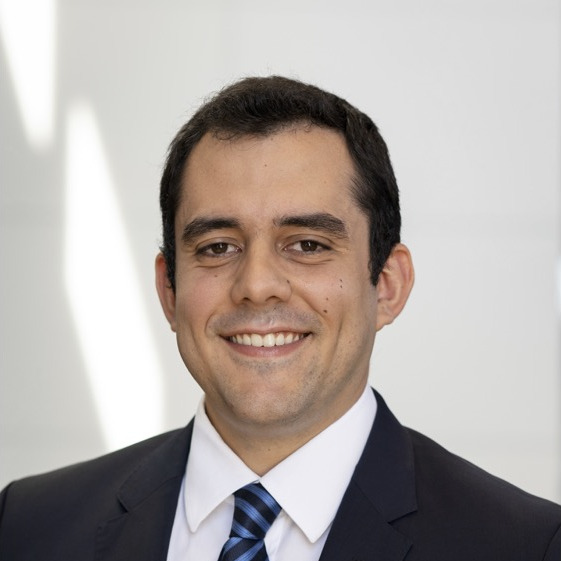
Pavlos Pantazis
My name is Pavlos Pantazis and I am currently a master's degree student at Princeton University majoring in Financial Mathematics. Aiming to apply statistical methods and machine learning in medical data, my research focus is on the Processing and Analysis of Biomedical Data. As an undergraduate student I majored in Electrical and Computer Engineering at the University of Patras and enrolled in a great variety of courses. In the core part of my major, I built a well-rounded mathematical foundation, which along with my experience in competitive programming, highly stimulated my interest in forming robust and efficient algorithms. My keen interest in research was sparked during my summer internship at the Simulation Laboratory Quantum Materials in Forschungszentrum Julich's Supercomputer Centre in Germany. Through this experience I gained in-depth knowledge of C++ and several parallel programing tools while acquiring hands-on experience on simulating and solving a computationally demanding mathematical problem. Thus, I specialized in computer science, focusing on machine learning and neural networks. Concurrently as I was seeking to further my knowledge in finance, I pursued a minor degree in Finance at the American College of Greece. Furthermore, I worked as an intern at Boston Consulting Group and Alpha Bank. The dual-disciplinary nature of my academic interests led me to undertake a quantitative finance subject as my Diploma Thesis, which was carried out in collaboration with the Forecasting and Strategy Unit of the National Technical University of Athens. Fully utilizing my programing skills and mathematical background, I used Neural Networks to predict the daily closing prices of stocks and portfolio optimization techniques to create daily stock portfolios.
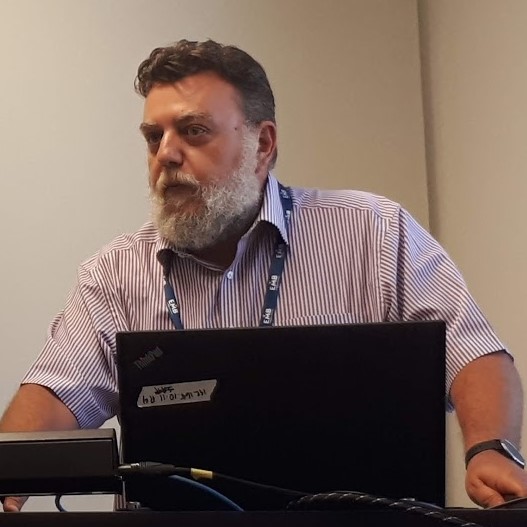
Stravros Pitoglou
Stavros Pitoglou received his BSc in Physics from the University of Patras, Greece in 2000. He currently holds the Chief Technical Officer position in Computer Solutions SA, being responsible for the company's Research and Development activities. Since 2004 he participated as Project Director or Senior Project Manager in several large-scale projects in the fields of Health IT and Medical Informatics as well as Coordinator and Senior Researcher in Research / Innovation projects. His research interests are focused on issues of machine learning and artificial intelligence applications in the healthcare domain, distributed networks and data security-privacy. He is a PhD candidate in the Biomedical Engineering Laboratory, School of Electrical and Computer Engineering of the National Technical University of Athens, member of the Institute of Electrical and Electronics Engineers (IEEE) - EMBS Society, member of the European Association for the Study of Diabetes and a certified HL7 Control Specialist by HL7 International Organization. His research interests focus on Machine Learning applications and Artificial Intelligence (ΑΙ) in Healthcare IT, distributed networks and safety/data security-privacy.
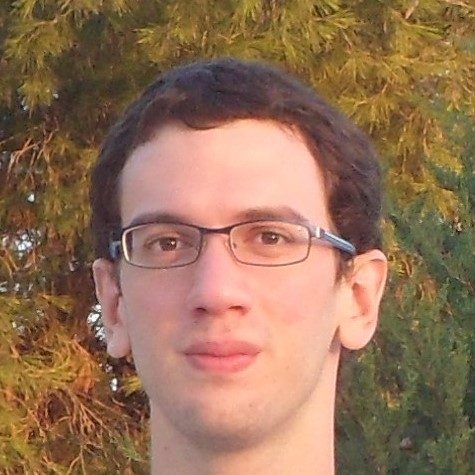
Konstantinos Raktivan
Konstantinos Raktivan holds a diploma in Electronics and Computer Engineering from the National and Technical University of Athens (NTUA). His diploma thesis, titled "Concolic testing using SMT solvers" was compiled in Software Engineering Laboratory. Currently he is a PhD candidate in the Biomedical Engineering Laboratory at the NTUA and his research focuses on fully automated 3D medical image segmentation using geodesic active contours. His interests include the implementation of methods for better and more efficient medical image analysis and visualization, as well as the extension and specialization of the functionality of existing software. He is familiar with various programming languages, including Bash, C, Java, Python and MATLAB, while he has experience in web development, especially in writing WordPress plugins.
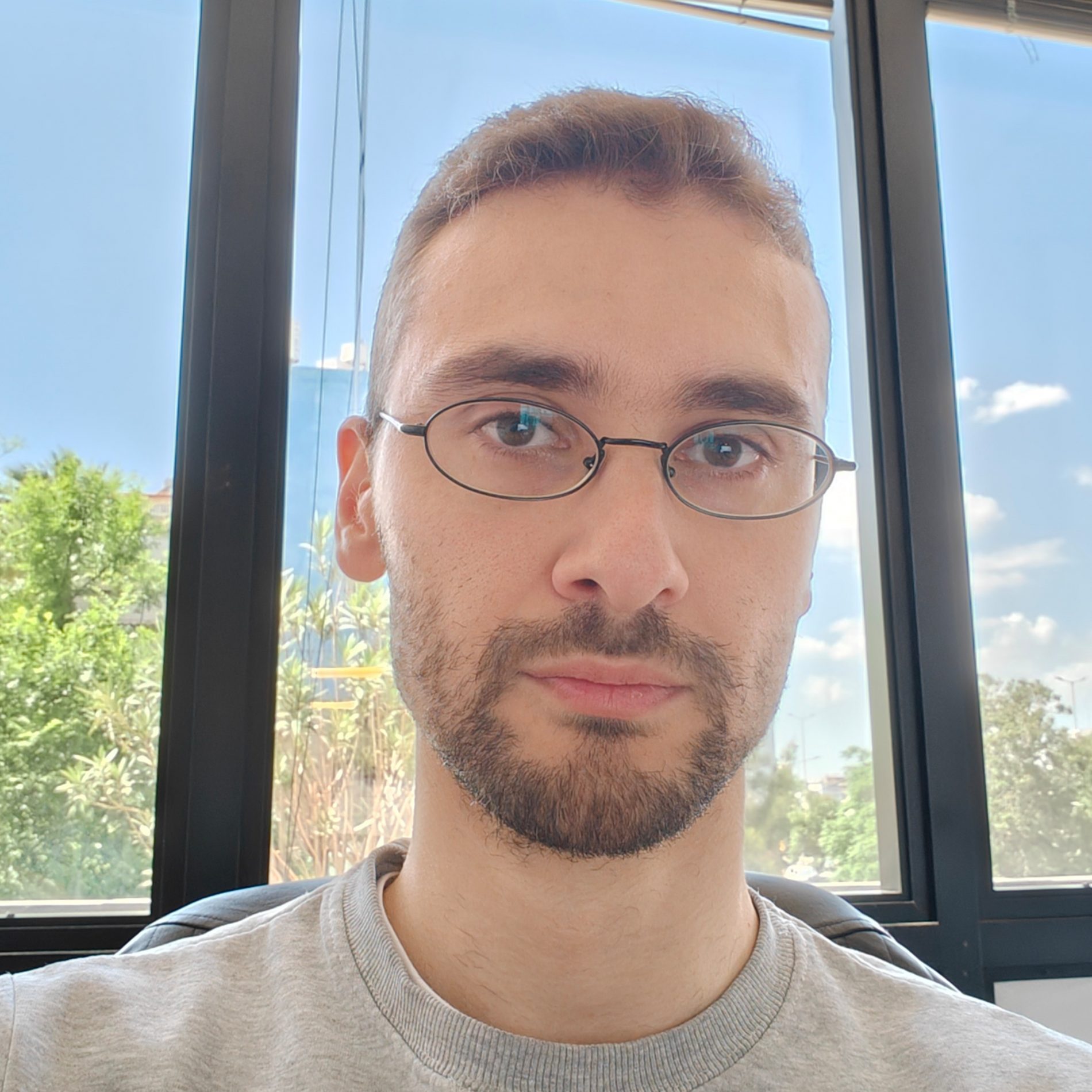
Pantelis Syringas
Pantelis Syringas was born in 1988 in Athens, Greece. He received his BEng in Electrical Engineering from Technological Institute of Piraeus in 2011 and his Diploma in Electrical and Computer Engineering in 2015 from the National Technical University of Athens (NTUA). He is a PhD candidate in the School of Electrical and Computer Engineering of the National Technical University of Athens. His research interests include biomedical technology and medical image processing. His technical skills include experience in C/C++ and Java.
Grigoria Trikalioti
She is a graduate of the Hellenic Air Force Academy Department of Engineering with a specialization in Telecommunications - Electronics. She obtained a master's degree at the Department of Informatics and Communications of the National Kapodistrian University of Athens (EKPA) in the direction of New Technologies of Informatics and Communications. She is completing the Master's Program in the field of Geoinformatics of the National Technical University of Athens. She is a PhD candidate at the School of Electrical and Computer Engineering of the National Technical University of Athens in the Biomedical Technology laboratory.
Research interests: Machine Learning, Neural Networks, Data Science on medical and geographical data using Python programming language.
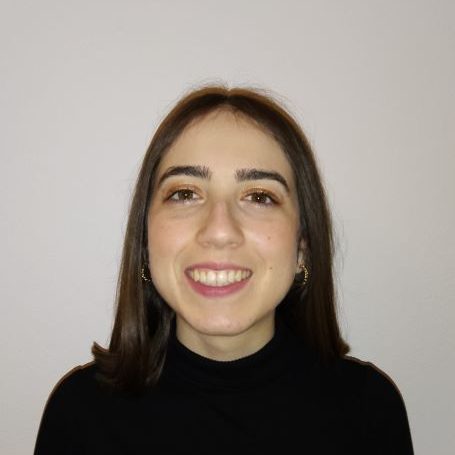
Konstantina - Eleni Tsarapatsani
Konstantina-Eleni Tsarapatsani received her degree in Materials Science Engineering from the Polytechnic School of the University of Ioannina in 2021. She is currently working on her PhD thesis on the processing and analysis of big medical data at the Laboratory of Information Transmission Systems and Materials Technology of the School of Electrical Engineering of Engineering and Computer Engineering of NTUA. At the same time, she is working on the European Union's Horizon 2020 research and innovation programme - TIMELY research project as part of her doctoral thesis. Her research focuses on leveraging medical data, using machine learning and deep learning algorithms, targeting early prediction and risk assessment of cardiovascular events, ultimately supporting clinical decisions.

Theodoros P. Vagenas
Theodoros P. Vagenas received his diploma of Electrical and Computer Engineer, from the division of Electronics and Computer Science and his MSc degree in Advanced Computer and Communication Systems with specialization field: Intelligent and Autonomous Systems-Computational Intelligence Methodologies and Applications, from Aristotle University of Thessaloniki, Greece. His diploma and Msc thesis concerned the design and development of "Meanshift algorithm with Locality Sensitive Hashing using CUDA" and "Deep learning neural networks for the registration and cartilage segmentation of MRI knee images" respectively. He is currently pursuing his PhD in Biomedical Engineering and Artificial Intelligence in Medical Imaging in the School of Electrical and Computer Engineering in the National Technical University of Athens (NTUA). His research interests include Medical Imaging, 3D Medical Image Analysis, Decision support systems, Machine Learning and Artificial Intelligence-based models and algorithms. He has previous programming experience on C/C++, CUDA, Python and Matlab. In addition, he has worked on research projects for the Institute of Communication and Computer Systems (ICCS) in Athens and the Aristotle University of Thessaloniki.
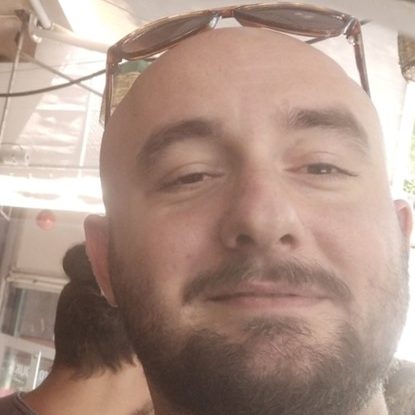
Nikolaos Vasileiou
Mr. Nikolaos Vasileiou graduated from the school of Electrical and Computer Engineers at the National Technical University of Athens in 2017. His diploma thesis "Study of a Battery Management System for Lead-Acid Batteries and Development of a Residential Energy Management System with Battery Usage" studies the basic functions of a battery management system and proposes a residential energy management system with battery usage that minimizes the cost of domestic energy consumption. Since 2020 he is a PhD candidate in the Biomedical Engineering Laboratory at the National Technical University of Athens. His responsibilities include Processing and Analysis of MRI images and is currently working on an algorithm for automated human brain thalamus segmentation. He has participated in numerous european research projects, possessing a solid background in software development, planning of Clinical Decision Support systems, implementation of web applications and creation-management of medical databases, in accordance with the international medical standard FHIR (Fast Healthcare Interoperability Resources).
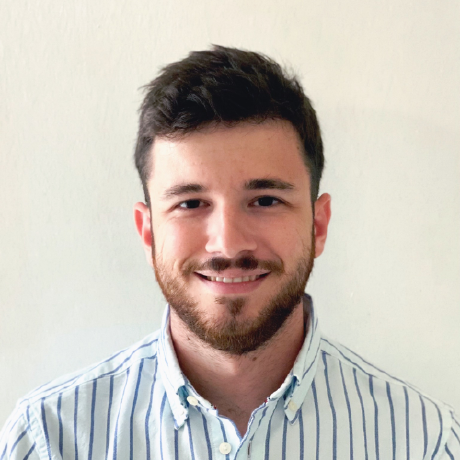
Ioannis Vezakis
Ioannis Vezakis is a graduate of the School of Electrical and Computer Engineering of NTUA. He graduated in 2019 with the title of his thesis "Detection of angioectasias in capsule endoscopy video feeds". Since then, he is a PhD Candidate at the Biomedical Engineering Laboratory focusing on the use of Machine Learning techniques for medical image segmentation, diagnosis, and prognosis.

Ioannis Zorzos
Ioannis Zorzos graduated from the Department of Electrical and Computer Engineering at the National Technical University of Athens (NTUA) in 2019. He is currently a PhD Candidate and Researcher with the Biomedical Engineering (BIOMED) Laboratory at NTUA, specializing in Artificial Intelligence applications in Medicine. His primary research areas include decoding electroencephalogram (EEG) signals, exploring deep learning architectures for medical applications, and developing Brain Computer Interfaces (BCI).
Driven by a passion for deep learning applications in medicine, Ioannis began his journey with an internship at CORSMED, focusing on automated medical image segmentation. As he progressed in his doctoral studies, he joined a development team to design, implement, and test a BCI application. This application utilized EEG signals to control a motorized wheelchair through deep learning techniques. Currently, Ioannis holds the position of Deep Learning Engineer at the Institute of Communication and Computer Systems (ICCS) of NTUA, further expanding his expertise in the field.

